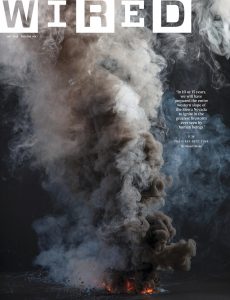
Wired USA – November 2020
English | 89 pages | pdf | 35.74 MB
“You earn public confidence in small drops,” warned former FDA commissioner Scott Gottlieb in August, when the agency overstated the effects of convalescent plasma as a treatment for Covid-19. “And you lose it in buckets.” Others share his sense that people’s faith in scientific leadership may be foundering.
Anthony Fauci, director of the National Institute of Allergy and Infectious Diseases, sees widespread suspicion of the process as “a looming problem” for the release of a vaccine. Bioethicist Zeke Emanuel worries that we’ve fallen into a “fever of distrust.”
I’m not so sure they’re right. Most data point the other way, toward the opposite problem: Public trust in science has been so unwavering in recent decades, so impervious to scandal or discredit, that it seems more apt to worry about whether members of the public are even paying attention.
The president has, by most accounts, spent the last 3.5 years in a posture of open hostility toward science. A long and devastating cover story in The New York Times, published last December, ran under the well-supported headline “Trump Eroding Role of Science in Government.” Yet veneration of our scientific leaders has more than weathered this administration. A Pew Research survey conducted last spring found a large boost, since 2016, in the proportion of adults who report having “a great deal” of confidence that scientists will act in the best interests of the public.
Measured over the long term, our faith in science has maintained an eerie constancy: In 1974, 45 percent of surveyed adults reported having “a great deal of confidence” in the leaders of the scientific community; in 2018, it was 44 percent. What, if anything, could ever rattle this belief? We shrugged off the Republican “War on Science,” as we did the overlapping “Science Wars” waged by postmodernist, left-wing academics. We forgave the research-integrity meltdown of the late 1980s, which led to congressional hearings on rampant scientific fraud, then took little notice of the reproducibility crisis of the 2010s. The meta-scientist John Ioannidis’ demonstration, in 2005, that most published research findings are false did nothing to erode our trust. The open-science methods revolution that followed did nothing to enlarge it.
This should come as a relief. It’s far better that our faith in science should persist in spite of everything than that it should collapse into the gutter. But the present moment may end up being an exception— not in the sense that public trust will, finally, erode (chances are it won’t) but because, finally, it ought to. At least in certain spheres. Americans who worry over the politicization of the vaccine-approval process have a solid read on what’s been going on.
It’s true that political hacks were installed at the FDA, and it’s true that the process for selecting and approving a vaccine has been opaque, suspicious, and at times misleading. It’s also true that, more than once, the completion of important research on therapies for Covid-19 has been undercut by inefficiency and poor decisionmaking. If there ever was a time to be wary of our scientific institutions, it’s now. If there ever was a time to wonder whether an approved vaccine has been fully vetted, it’s today.
Here’s another way to think about it: If our confidence in scientific institutions really does diminish in this moment of pandemic politics, that’s not the
fever—it’s the cure. It means that Americans have examined all the evidence before them and adjusted their beliefs accordingly.
—Daniel Engber is Wired’s USA Ideas editor. Read an expanded version of this column at wired.com.
Download from: